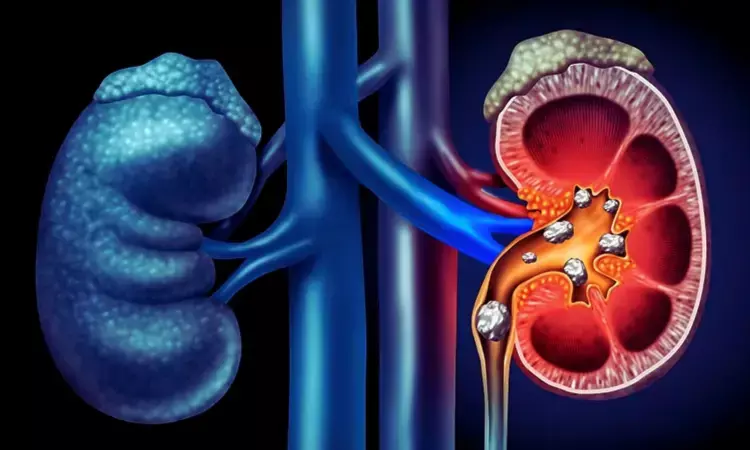- Home
- Medical news & Guidelines
- Anesthesiology
- Cardiology and CTVS
- Critical Care
- Dentistry
- Dermatology
- Diabetes and Endocrinology
- ENT
- Gastroenterology
- Medicine
- Nephrology
- Neurology
- Obstretics-Gynaecology
- Oncology
- Ophthalmology
- Orthopaedics
- Pediatrics-Neonatology
- Psychiatry
- Pulmonology
- Radiology
- Surgery
- Urology
- Laboratory Medicine
- Diet
- Nursing
- Paramedical
- Physiotherapy
- Health news
- Fact Check
- Bone Health Fact Check
- Brain Health Fact Check
- Cancer Related Fact Check
- Child Care Fact Check
- Dental and oral health fact check
- Diabetes and metabolic health fact check
- Diet and Nutrition Fact Check
- Eye and ENT Care Fact Check
- Fitness fact check
- Gut health fact check
- Heart health fact check
- Kidney health fact check
- Medical education fact check
- Men's health fact check
- Respiratory fact check
- Skin and hair care fact check
- Vaccine and Immunization fact check
- Women's health fact check
- AYUSH
- State News
- Andaman and Nicobar Islands
- Andhra Pradesh
- Arunachal Pradesh
- Assam
- Bihar
- Chandigarh
- Chattisgarh
- Dadra and Nagar Haveli
- Daman and Diu
- Delhi
- Goa
- Gujarat
- Haryana
- Himachal Pradesh
- Jammu & Kashmir
- Jharkhand
- Karnataka
- Kerala
- Ladakh
- Lakshadweep
- Madhya Pradesh
- Maharashtra
- Manipur
- Meghalaya
- Mizoram
- Nagaland
- Odisha
- Puducherry
- Punjab
- Rajasthan
- Sikkim
- Tamil Nadu
- Telangana
- Tripura
- Uttar Pradesh
- Uttrakhand
- West Bengal
- Medical Education
- Industry
Higher thiazide doses may reduce kidney stone events, suggests JAMA study

Higher thiazide doses are associated with greater reductions in urine calcium, which in turn correlate with fewer symptomatic kidney stone events, according to a Vanderbilt University Medical Center (VUMC) study published in JAMA Network Open.
Thiazide diuretics, commonly prescribed to prevent kidney stone recurrence, are drugs that act directly on the kidneys to promote diuresis (urine flow) by inhibiting the sodium/chloride cotransporter located in the distal convoluted tubule of a nephron (the functional unit of a kidney). Thiazides are also used as a common treatment for high blood pressure and to clear fluid from the body in conditions such as heart failure.
First author Ryan Hsi, MD, FACS, associate professor in the Department of Urology at VUMC, said the study data help explain the findings of the multicenter Hydrochlorothiazide for Kidney Stone Recurrence Prevention (NOSTONE) trial, which reported that hydrochlorothiazide did not reduce recurrence of kidney stone events.
“In light of our research, the calcium reductions in that study were modest and likely insufficient to affect recurrence risk,” Hsi said.
“What this means for patients is that thiazides remain an important option in the toolkit for preventing kidney stone recurrence. It may be beneficial to monitor calcium excretion while on thiazide therapy to adjust dose and diet to attain an adequate reduction in urine calcium.”
A total of 634 participants were studied, revealing significant associations between higher thiazide doses and urine calcium reductions greater than those achieved in the NOSTONE trial, where participants took different doses of hydrochlorothiazide.
For next steps, the researchers are interested in understanding which subtypes of thiazides and their dosing work best, and how best to optimize medication adherence, since these therapies are often administered long term.
Reference:
Hsi RS, Yan PL, Maalouf NM, et al. Thiazide Dose, Urine Calcium, and Symptomatic Kidney Stone Events. JAMA Netw Open. 2024;7(8):e2428953. doi:10.1001/jamanetworkopen.2024.28953
Dr Kartikeya Kohli is an Internal Medicine Consultant at Sitaram Bhartia Hospital in Delhi with super speciality training in Nephrology. He has worked with various eminent hospitals like Indraprastha Apollo Hospital, Sir Gangaram Hospital. He holds an MBBS from Kasturba Medical College Manipal, DNB Internal Medicine, Post Graduate Diploma in Clinical Research and Business Development, Fellow DNB Nephrology, MRCP and ECFMG Certification. He has been closely associated with India Medical Association South Delhi Branch and Delhi Medical Association and has been organising continuing medical education programs on their behalf from time to time. Further he has been contributing medical articles for their newsletters as well. He is also associated with electronic media and TV for conduction and presentation of health programs. He has been associated with Medical Dialogues for last 3 years and contributing articles on regular basis.
Dr Kamal Kant Kohli-MBBS, DTCD- a chest specialist with more than 30 years of practice and a flair for writing clinical articles, Dr Kamal Kant Kohli joined Medical Dialogues as a Chief Editor of Medical News. Besides writing articles, as an editor, he proofreads and verifies all the medical content published on Medical Dialogues including those coming from journals, studies,medical conferences,guidelines etc. Email: drkohli@medicaldialogues.in. Contact no. 011-43720751


